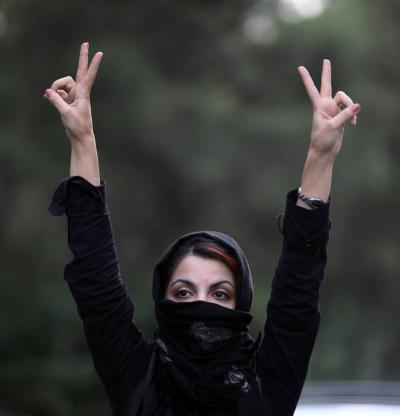The imprisonment of Iranian activist Narges Mohammadi and her subsequent receipt of the Nobel Peace Prize have highlighted women's rights in Iran. Tehran denies discrimination accusations, but here are some aspects of how Iran treats women, according to reports from 2021 and 2023 by the UN Special Rapporteur on the Islamic Republic of Iran, Javaid Rehman:
* **Dress Code**
The UN report states that the police, Basij militia, and morality police enforce mandatory dress codes in public places using violence. A woman not wearing a hijab may face harassment, arrest, fines, and up to two months in prison. Activists challenging these rules have been imprisoned for years. Mahsa Amini died in custody after violating hijab rules, sparking nationwide protests amidst an official campaign to impose Islamic dress codes. Footage showed security forces beating women who removed their hijabs during protests. A UN report cited human rights groups and former detainees claiming that security forces sexually assaulted women during protests. Iran denied mistreatment of protesters and detainees. Meanwhile, Parliament approved a bill imposing a prison sentence of up to 10 years for anyone organizing protests against hijab-wearing, but the bill has not yet become law.
* **Marriage and Divorce**
The legal age for girls to marry is 13, and girls younger than this can marry with special permission from their father and the judiciary. According to the UN report, over 13,000 girls aged 13 were married between March 2018 and March 2019, based on the latest available governmental data. A woman must obtain her father's consent to marry, but the court may override his refusal. Husbands can prevent their wives from working in certain jobs or traveling abroad. Iran allows polygamy along with an unspecified number of limited-duration marriages. Husbands have the right to divorce without obstacles, but women can only seek divorce for limited reasons and usually have to forfeit their financial rights to reach an agreement. Mothers can obtain custody of children until the age of seven, after which custody typically passes to the father, although the court can intervene. The father remains the sole legal guardian.
* **Criminal Law**
Girls can be held criminally responsible for serious offenses starting at the age of nine lunar years, whereas boys cannot be held responsible until age 15 lunar years. In 2018, Mahbubeh Mohammadi, who married at 13, was executed for allegedly killing her 17-year-old husband after he was accused of domestic violence. The penal code states that a woman’s blood money is half that of a man’s. A woman's testimony in court counts for half that of a man in many proceedings.
* **Violence**
Sexual assault is not considered a separate crime. The UN Rapporteur noted that rape can be litigated as an unlawful form of sexual relations, but the victim risks punishment if she cannot prove coercion. A man who catches his wife committing adultery may evade some penalties if he kills her. There are exemptions for men who kill their children or grandchildren, which provides some protection in "honor crimes" where women and girls are killed for alleged sexual misconduct. The Rapporteur stated that wives must prove "an unbearable level of marital abuse" to obtain a divorce based on domestic violence.
* **Employment**
Women do not have the right to become judges, and very few women have held high political positions. Many women who apply to run for elections have not been granted permission to enter the race. Authorities occasionally prohibit women from working as secretaries, office managers, or in restaurants and cafes.




